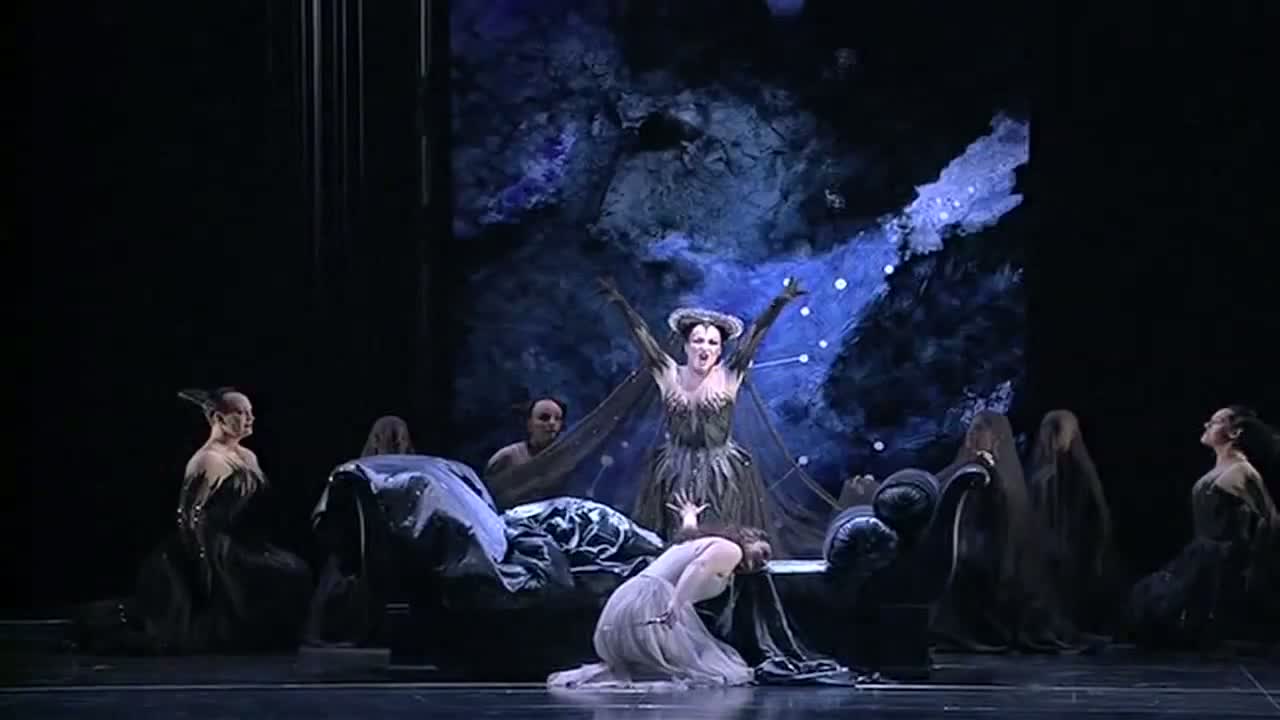Der Hölle Rache kocht in meinem Herzen, (The revenge of Hell cooks in my heart,)
Tot und Verzweiflung flammet um mich her! (Death and despair flame around me!)
Fühlt nicht durch dich Sarastro (If Sarastro does not feel through you)
Todesschmerzen, (Death’s pain,)
So bist du meine Tochter nimmermehr. (Then you will never again be my daughter.)
Verstossen sei auf ewig, (you’ll be Disowned eternally,)
Verlassen sei auf ewig, (Abandoned may you be eternally,)
Zertrümmert sei'n auf ewig (Destroyed be eternally)
Alle Bande der Natur (All bonds of nature,)
Wenn nicht durch dich (If not by you)
Sarastro wird erblassen! (Sarastro becomes pale! (as death))
Hört, Rachegötter, (Hear, the revenge of the Gods,)
Hoert der Mutter Schwur! (Hear the mother's oath!)
Everybody wants to sing this aria. Following Ms. Damrau is a hilarious attempt by a nobody soprano. Pay attention to the amusement felt by the violinist sitting behind the singer. She can't reach the high notes, but she's so willing to try!




No comments:
Post a Comment